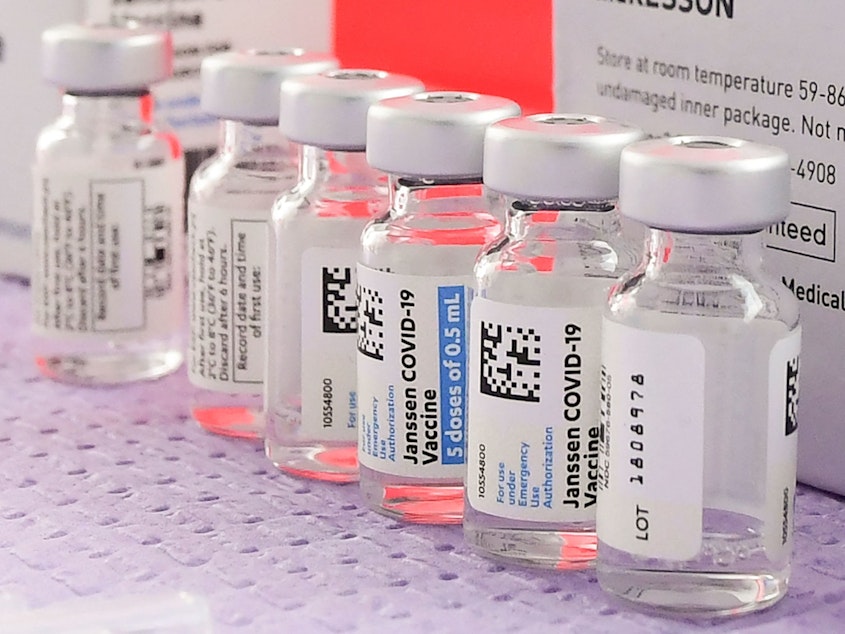What's Next For The J&J Vaccine? U.S. Health Authorities Discuss Resuming Shots

For the last 10 days the Johnson & Johnson COVID-19 vaccine has been in limbo as U.S. health authorities declared a recommended "pause" on administering the shot.
Now the Centers for Disease Control and Prevention's vaccine advisory committee is meeting again to discuss whether use of the vaccine should resume — and whether any warnings should accompany the shot.
The hold on Johnson & Johnson's vaccine was prompted by six reported cases of a severe blood clotting disorder called cerebral venous sinus thrombosis, among the 7.2 million shots of the one-dose vaccine administered in the United States. A 45-year-old woman died after receiving the vaccine.
An expert advisory committee to the CDC decided April 14 that it needed more time to assess the data before recommending whether to restart the shots.
The European Union's drug regulator released its assessment this week that the shot's benefits "in preventing COVID-19 outweigh the risks of side effects." The agency determined that the vaccine can still be used without restrictions and that a warning should be added to its product information.
Sponsored
Some have criticized the extended pause.
Dr. Ashish Jha, dean of Brown University's School of Public Health, argued that given that most cases of the blood-clotting issue appear in women, the committee last week should have recommended continuing the pause only for women 18 to 49 and resumed it for everyone else.
"Keeping vaccine paused for everyone makes little sense," Jha tweeted, adding that the risk-benefit analysis for keeping the vaccine paused for everyone was "WAY off."
"We're still allowed to cross a busy street, or eat raw/uncooked fish, or stick our face in a fan. But we can't get a shot that protects ourselves and others from serious illness and allows a return to normal life — because it *might* have a 1-in-7-million fatal clotting issue," The Atlantic's Graeme Wood noted.
The CDC's principal deputy director, Dr. Anne Schuchat, said when the pause was announced, it was intended "to prepare the health care system to recognize and treat patients appropriately." The White House said the pause would not have a significant impact on its vaccination plan because most of the vaccines used in the U.S. come from Pfizer and Moderna, but the stoppage did lead to canceled appointments. [Copyright 2021 NPR]

